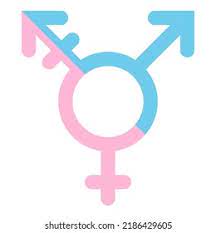Oestrogen is often thought of as a female hormone, but it’s essential for males too. While men produce oestrogen, having too much of it can lead to a host of health issues, including weight gain, mood swings, and even sexual dysfunction. Understanding how to manage and reduce oestrogen levels can play a crucial role in maintaining overall health and well-being for men. In this article, we’ll explore why oestrogen matters, its common causes, signs of elevated levels, and practical strategies for reducing it naturally.
Understanding Oestrogen: Why It Matters for Males
Oestrogen is a vital hormone for both males and females, although its functions differ significantly between the sexes. In men, oestrogen plays a role in modulating libido, erectile function, and spermatogenesis, among other bodily processes. While a certain level of oestrogen is necessary for male health, an imbalance can lead to complications. In essence, oestrogen helps maintain bone density, aids in brain function, and even supports heart health. However, when levels are too high, it can disrupt the delicate hormonal balance that is crucial for overall well-being.
The importance of maintaining balanced oestrogen levels cannot be overstated. Elevated oestrogen can cause a range of issues, from increased body fat and gynecomastia (the development of breast tissue) to emotional disturbances and infertility. Thus, understanding how to manage oestrogen levels is vital for men who want to maintain optimal health, vitality, and quality of life.
Common Causes of High Oestrogen Levels in Men
Several factors can contribute to high oestrogen levels in men. One significant culprit is obesity. Fat tissue produces oestrogen, so excess body fat can lead to an increase in oestrogen production, creating a vicious cycle of weight gain and hormonal imbalance. Other lifestyle factors, such as poor diet, lack of exercise, and excessive alcohol consumption, can also exacerbate this issue. Additionally, exposure to environmental chemicals known as endocrine disruptors—found in plastics, pesticides, and personal care products—can mimic oestrogen and further elevate levels in men.
Medical conditions can also play a role in increasing oestrogen levels. Conditions such as liver disease, hyperthyroidism, and certain tumors can disrupt the body’s hormonal balance, leading to elevated oestrogen. Medications, especially those related to hormone therapy or steroids, can additionally impact oestrogen levels. Recognizing these potential causes is the first step in addressing and mitigating high oestrogen levels effectively.
Signs You Might Have Elevated Oestrogen Levels
If you’re concerned that your oestrogen levels might be too high, there are some signs and symptoms to watch for. Physical symptoms can include unexplained weight gain, particularly around the hips and abdomen, and the development of breast tissue (gynecomastia) in men. You might also notice changes in sexual function, such as reduced libido, erectile dysfunction, or infertility issues. These changes can be distressing and may prompt further investigation into hormone levels.
Emotional and psychological symptoms can also indicate elevated oestrogen. Mood swings, anxiety, and depression are common issues that affect men dealing with hormonal imbalances. If you feel more irritable or find yourself experiencing mood fluctuations that seem disproportionate to your circumstances, it might be worth considering your hormonal health. Recognizing these signs is essential for taking proactive steps to address the issue effectively.
Lifestyle Changes to Naturally Lower Oestrogen Levels
Making certain lifestyle changes can significantly impact oestrogen levels. One of the most effective strategies is to adopt a healthier diet. Reducing processed foods, sugar, and unhealthy fats can be beneficial, while increasing your intake of whole foods like fruits, vegetables, and whole grains can help regulate hormone levels. Additionally, staying hydrated and reducing caffeine and alcohol consumption is critical. These changes can help support the body’s natural hormone regulation processes.
Another lifestyle change that can aid in lowering oestrogen levels is improving sleep quality. Poor sleep can lead to hormonal imbalances, so ensuring you get enough restorative sleep each night is essential. Implementing a regular sleep routine, reducing screen time before bed, and creating a comfortable sleep environment can help improve sleep quality and, in turn, support hormonal balance. Mindfulness practices such as meditation and yoga can also reduce stress levels, which can affect hormone production.
Foods That Help Reduce Oestrogen in Males
Certain foods can be particularly effective in the fight against elevated oestrogen levels. Cruciferous vegetables like broccoli, cauliflower, and Brussels sprouts contain compounds called indole-3-carbinol, which can help promote the metabolism of oestrogen, effectively reducing its levels in the body. Increase your intake of these vegetables, as they not only support hormonal balance but also provide a wealth of vitamins and minerals crucial for overall health.
Additionally, incorporating foods rich in zinc, such as oysters, pumpkin seeds, and lean meats, can help balance testosterone and oestrogen levels. Foods high in omega-3 fatty acids, like fatty fish, walnuts, and flaxseeds, also contribute to hormonal balance by reducing inflammation. Lastly, considering the role of fiber in your diet is essential; fiber helps eliminate excess hormones from the body, so ensure you’re getting adequate amounts through whole grains, legumes, and fruits.
Supplements That Support Hormonal Balance
If you’re looking to supplement your diet for better hormonal balance, several options may help lower oestrogen levels. One popular choice is DIM (diindolylmethane), a compound derived from cruciferous vegetables that can support healthy oestrogen metabolism. Studies suggest that DIM can promote a balance between oestrogen metabolites, making it a favorable option for men concerned about high levels.
Another supplement worth considering is zinc, which can help balance testosterone and oestrogen levels. Magnesium is also beneficial, as it plays a role in over 300 biochemical reactions in the body, including hormone regulation. Always consult with a healthcare provider before starting any new supplements to ensure they are appropriate for your individual needs and circumstances.
The Role of Exercise in Oestrogen Management
Exercise is a powerful tool for managing oestrogen levels in men. Regular physical activity can help reduce body fat, which is critical since adipose tissue (fat) produces oestrogen. Engaging in both aerobic exercises—like running, swimming, or cycling—and strength training can be particularly effective. While cardio helps burn calories and reduce fat, strength training builds muscle, which helps increase metabolism and maintain healthy hormone levels.
Moreover, exercise can enhance mood and reduce stress, contributing to a healthier hormonal balance overall. Activities like yoga and Pilates can improve flexibility and help manage stress levels, while intense workouts can boost testosterone levels. Finding an enjoyable exercise routine that you can stick to will not only help lower oestrogen levels but also improve your overall well-being and quality of life.
When to Seek Help: Consulting a Health Professional
If you suspect that you have elevated oestrogen levels, consulting a healthcare professional is a wise step. A doctor can perform the necessary tests to assess your hormone levels accurately and recommend appropriate interventions. They can provide guidance on lifestyle changes, dietary adjustments, and supplements that may be beneficial for you. It’s essential not to self-diagnose or self-treat, as hormone imbalances can be complex and require professional insight.
Additionally, if lifestyle changes and natural remedies do not yield improvements, medical treatment may be necessary. Your healthcare provider may recommend further evaluations to identify underlying health conditions contributing to hormonal imbalances. By seeking professional help, you can create a tailored plan that addresses your specific needs and goals, ensuring you achieve optimal health and hormonal balance.
Managing oestrogen levels in males is crucial for overall health and well-being. By understanding the role of oestrogen, recognizing the signs of elevated levels, and implementing lifestyle changes, dietary adjustments, and exercise, you can take proactive steps to maintain hormonal balance. Remember, it’s always best to consult with a healthcare professional to address any concerns and develop a tailored plan that works for you. Taking control of your hormonal health not only enhances your physical well-being but can also improve your mental and emotional health, leading to a more balanced and fulfilling life.


